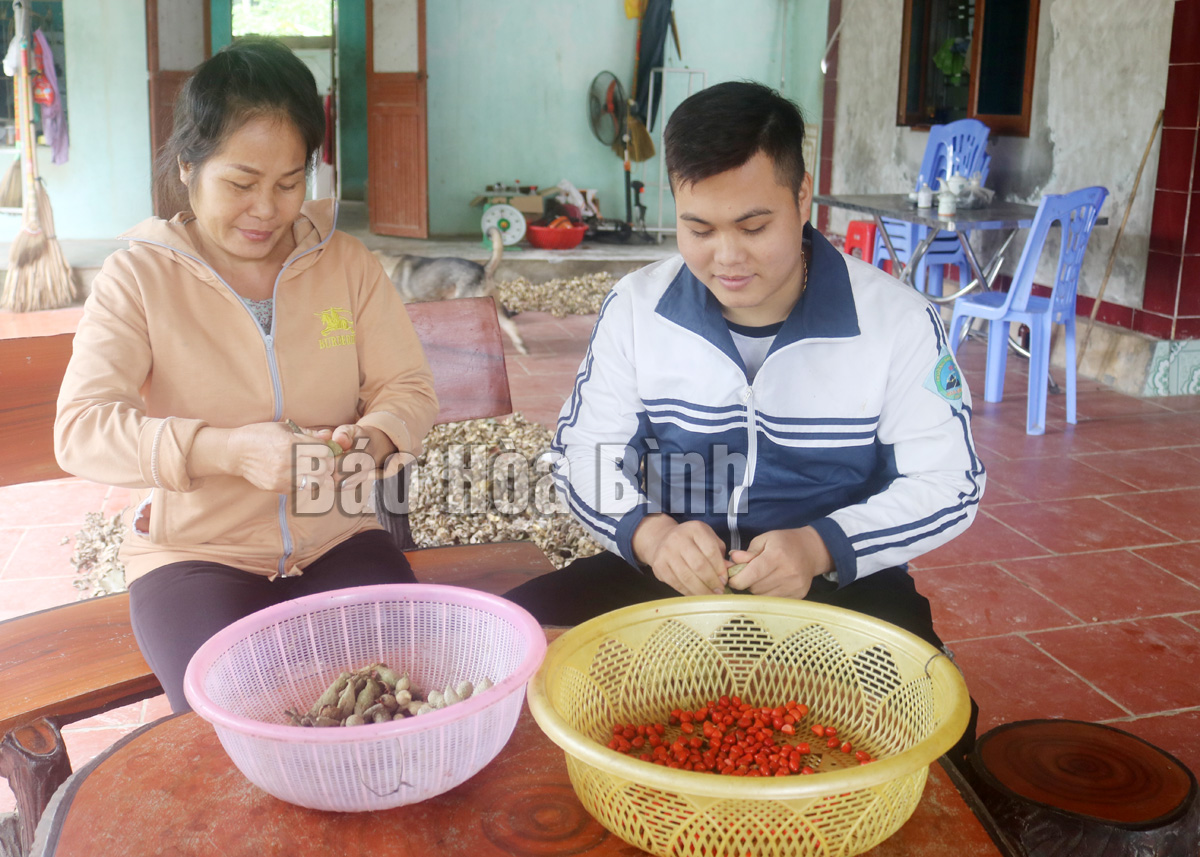


(HBO) - In the cold weather of the late autumn days, we went to Ba Lam hamlet, Nuong Dam commune of Kim Boi district, which is famous for Doi (Michelia tonkinensis) seeds in the Muong Dong region. This year, Doi farmers are enjoying a bumper crop and Doi seeds are being sold at good prices. The so-called "black gold” of the northwestern mountainous region has helped increase locals’ income, helping many families escape from poverty.

Locals in Ba Lam village, Nuong Dam commune (Kim Boi) harvest Doi seeds.
Ba Lam hamlet has 286 households, 70 percent of them grow Doi trees. Following Bui Van Khiet, we visited some Doi-growing families in Ba Lam. Khiet said that in the commune, each household grows from 5-10 Doi trees, and even nearly 200 trees. Thanks to suitable soil and climate, Doi seeds here have a more typical aroma than those of other regions. Every year, when it comes to the Doi season, traders from across the nation come to buy local Doi seeds. Many people had to make orders from the previous year. Doi tree has many advantages as it is able to be grown in bad soil, infertile soil, or with other types of trees. Moreover, it doesn't take too much care, but the price is stable. Therefore, many households in Ba Lam and other hamlets in Nuong Dam have learned how to incubate and graft the trees to expand the growing area and increase income.
We visited the house of Bui Van Ty, one of the families that have grown Doi for a long time and earned good income. Ty shared: This year’s crop, my family collected 300kg of fresh seeds and sold them for 500,000 VND per kg to traders in Phu Tho and Hanoi. Although the COVID-19 pandemic has some impacts, it is still easy to sell Doi seeds. Thanks to this kind of seed, my family has money to repair my house, invest more in husbandry, and have conditions for my children to study.
Nguyen Van Chi, Vice Chairman of the People's Committee of Nuong Dam commune said thanks to Doi trees, many households in Ba Lam have escaped from poverty. There are currently 51 poor households in the hamlet, accounting for 17.8 percent. Per capita income reached 16 million VND in 2020, and is expected to reach 18.5 million VND in 2021. That result achieved is partly thanks to the revenue from Doi. In order to promote the potential and strengths of the locality, we have sent several Doi growing households to visit models in Lac Son district to learn how to take care of the trees and preserve their seeds. The biggest concern of Ba Lam residents today is how to build brand for this product. In the coming time, locals will strive to build a brand so that Ba Lam Doi seeds can stand shoulder to shoulder with specialties in many other localities./.